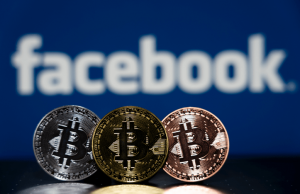SAN FRANCISCO, Calif. – The Abyss founder Konstantin Boyko-Romanovsky has noted that initial coin offerings (ICOs) have already been questioned for quite some time as to why people were allowed to raise money even without a platform or product.
By adopting the DAICO system, Boyko-Romanovsky believes that he will be able to show that his company is all about eradicating platforms for video game trade. The DAICO project will allow The Abyss to deliver more money to the developers and will provide a better advertisement platform for video games.
Vitalik Buterin, one of the initial developers of the crypto funding mechanism, had introduced the idea regarding control over how ICOs are handled.
Last month, Buterin had proposed that there should be an association between Ethereum and a decentralized autonomous organization (DAO), which will give users a deciding factor on how raised money gets handled.
Now, the DAICO project is already underway, and word has it that this new idea will be used for the upcoming token sale. Gaming startup, The Abyss has decided to take notice of Buterin’s plan and put it into action.
Many people are intrigued and excited with the end product of this grand idea. However, there are no assurances just yet. As of the moment, the plan is to take the project to a test run. Even so, news has gotten out that many people will embrace this discovery as soon as everything else is plastered.
The first DAO had a vulnerability which allowed a hacker to transfer $60 million to himself. This unfortunate event was due to people’s inclination to care about how their project was handled rather than focus on how to govern the money which they had put in the cryptocurrency.
At that point, it was former Monax legal counsel and ICO skeptic Preston Byrne who asked a significant question about whether governance is more important than securing the money placed in the ICO.
Boyko-Romanovsky believes that the industry has experienced enough downfalls and has enough maturity to develop the ICO technology further. With the significant number of investors coming to the table, Boyko-Romanovsky thinks that many people would want to see an improvement in the workings of ICO issuers.
Buterin said that the DAICO works by combining two of Ethereum’s most famous concepts – the smart contract and the deposit.
The DAICO shall have a tap and refund feature. Issuers shall give their team a specific monthly budget which will be used to raise a fund. The tap feature decides the rate by which the group can extract funds from the smart contract.
The refund portion is the issuer. Once convinced that the team is not capable of raising the required funds needed, he will have the option to destroy the smart contract, and all the money invested in the agreement will be returned to the issuers.
However, even though the DAICO concept seemed to have echoed the heart of The Abyss staff, Boyko-Romanovsky still decided to add an extra feature – the buffer.
The buffer allows an option for the team so that after one month they realize that they have exceeded the expenses in the smart contract, they can request for more funds from the token holder.
Furthermore, Boyko-Romanovsky decided to make the tap option limited. If a token holder has given 100ETH for one month, then for the following month, the fund that they will provide to the team should not exceed 150ETH.
Even then, he believed that fundraises were going to happen too abruptly. With that, he thought of adding one more feature, which will prohibit the team from using the same option twice for two weeks.
Along with that, further rectifications will also be made to the refund feature. The Abyss founder has also mentioned that he wanted to look for crypto luminaries who will serve as “oracles.” The plan is that whenever a token holder requests for a refund, the appeal will not be granted immediately. Instead, the majority of the oracles have to agree with the demand for its initiation.
He said that the purpose of this change is to protect developers from investors who made a rash decision to invest when he was not ready yet, as well as to guard developers against issuers who decide to take back their money because of pricing issues.
Boyko-Romanovsky has also shared that many people are questioning him with regard to his $60 million fund investment. His only answer to this is that his company desperately needs to compete with the Steam Company.





